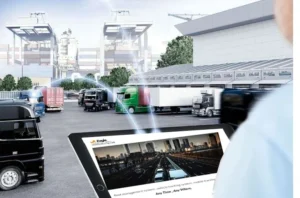
Fuel costs can drain a small business faster than expected, especially when every mile matters. With prices rising and efficiency becoming essential, choosing the right fuel card can completely change how you control spending and manage your vehicles. Smart businesses now look for tools that cut waste, tighten budgets, and keep operations moving smoothly. Fuel cards stand out as one of the simplest ways to gain clarity, reduce stress, and unlock genuine long-term savings.
Fuel costs can quickly add up for any small business, especially those managing several vehicles or frequent travel needs. This is why many businesses now look for simple tools that support cost control, smoother tracking, and better budgeting. Among these tools, fleet fuel cards have become a practical choice that helps companies streamline their spending and gain more visibility across every transaction.
Choosing the right card, however, requires a clear understanding of the different types available in the market. Each type comes with its own features, limits, and pricing structures. When you compare them properly, you can spot which option aligns best with your business goals and operational style. This article breaks down the main categories of fuel cards, how they work, and what small businesses should consider before making a decision.
A Closer Look at Fuel Cards and How They Work
Fuel cards work as controlled payment tools that allow businesses to monitor and manage fuel spending across multiple drivers or vehicles. Instead of using cash or general-purpose bank cards, fuel cards provide detailed oversight, spending limits, and accurate reporting. This makes them ideal for small businesses aiming for greater transparency and fewer administrative tasks.
Fuel cards also help reduce manual paperwork. With centralised billing and automated tracking, small firms save time and maintain cleaner records. This becomes especially useful for companies that rely heavily on regular travel for operations, deliveries, or on-site work.
Types of Fuel Cards for Small Businesses
Different fuel cards offer different benefits, so understanding each category is essential. The main types include branded fuel cards, multi-network cards, universal cards, and prepaid fuel cards. Each one suits businesses differently depending on routes, fleet size, and spending patterns.
1. Branded Fuel Cards
Branded fuel cards are linked to a single fuel provider. These cards are typically accepted at thousands of fuel stations under the same brand. They are designed to offer fixed pricing, loyalty discounts, or special rate structures.
They work well for businesses operating in limited regions with predictable routes. The drawback is limited flexibility, as drivers may need to travel farther to stay within the network. For small firms with strict route patterns, however, branded cards remain an economical and easy-to-manage choice.
Multi-network fuel cards offer access to a wider range of fuel stations. Instead of relying on a single brand, these cards support purchases across many major fuel networks. They provide more convenience, especially for businesses covering wider territories. For many small firms, fleet fuel cards within this category offer a flexible way to maintain smooth, uninterrupted travel.
Their versatility helps reduce unnecessary detours. Since drivers can refuel at more locations, the company saves time and ensures efficient operations. Multi-network cards also include helpful reporting tools that simplify accounting, budgeting, and cost reviews.
3. Universal Fuel Cards
Universal fuel cards are designed for maximum flexibility. They work across almost all fuel stations nationwide and can even be used for vehicle-related services such as maintenance or oil changes, depending on the provider’s setup.
Small businesses benefit from these cards when drivers frequently travel to new areas or follow unpredictable routes. With widespread acceptance, universal cards offer broad coverage without restricting drivers to specific locations. This convenience makes them popular for businesses with mixed travel patterns or growth plans.
4. Prepaid Fuel Cards
Prepaid fuel cards function similarly to digital wallets. Businesses load credit onto the card and allocate it to specific drivers or vehicles. Once the balance is used, it must be topped up before further spending.
These cards give excellent spending control and are ideal for businesses wanting strict limits. They also help prevent overspending and can be useful for short-term projects or seasonal operations. However, they may require more frequent monitoring to ensure the balance is always available when needed.
Key Factors to Consider When Choosing a Fuel Card
Selecting the right fuel card involves understanding how each type aligns with your operations. Below are essential factors small businesses should review:
Fuel Station Coverage
Wider coverage means fewer detours and better productivity. Businesses with drivers covering large distances often prefer multi-network or universal cards to avoid restrictions.
Pricing and Fees
Fuel card providers may charge monthly fees, transaction fees, or set pricing structures. It is important to compare these costs to avoid unexpected expenses.
Control Features
Look for spending limits, PIN protection, usage monitoring, and online account access. Strong control tools help prevent misuse and improve record-keeping.
Reporting and Data Insights
Good reporting tools help businesses analyse fuel usage, find savings opportunities, and track driver performance. Clear data makes long-term planning easier.
Security and Fraud Prevention
Fuel cards with strong security features reduce the risk of unauthorised spending. Small businesses benefit from cards that offer real-time alerts and secure authentication.
Benefits of Using Fuel Cards for Small Businesses
Fuel cards bring practical advantages that improve efficiency and financial control.
Improved Cost Management
Fuel cards allow businesses to set specific limits, track every purchase, and reduce unnecessary spending. This leads to better budgeting and more predictable monthly expenses.
Streamlined Administration
With automated reporting and consolidated billing, businesses cut down on time spent organising receipts and processing expenses. This simplifies financial work and helps maintain clean records.
Better Insights and Planning
Regular data on fuel usage helps owners identify patterns, spot wasteful practices, and adjust routes or operations. This leads to smarter decision-making and long-term savings.
Enhanced Driver Efficiency
Fuel cards reduce delays caused by searching for approved fuel stations or managing cash. Drivers can refuel quickly and continue their work without disruptions.
Conclusion
Choosing the right fuel card can transform the way a small business manages its expenses. With clear benefits such as spending control, easier administration, and better insight, fuel cards help companies stay organised and efficient. The key is comparing each type and selecting the one that aligns with your travel patterns, budget, and operational needs. As more businesses review their options, many find that using fleet fuel cards supports better planning and long-term growth. With thoughtful selection and consistent monitoring, fleet fuel cards become a valuable tool for any small organisation looking to keep fuel spending under control.






